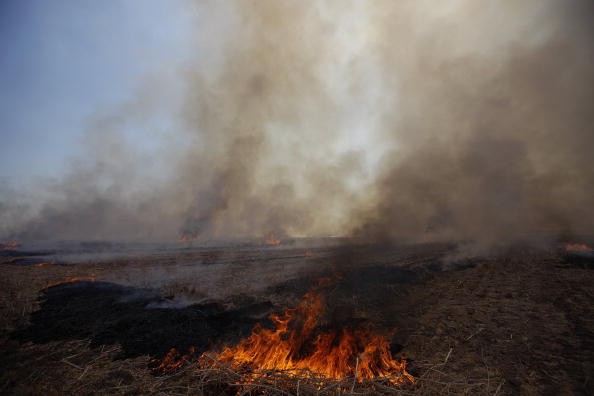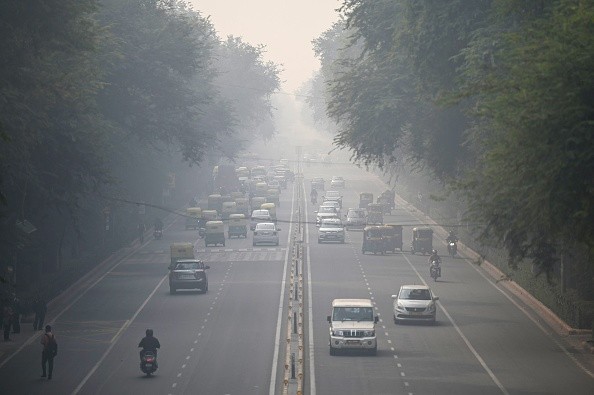Doctors observed a surprise silver lining in the early weeks of the coronavirus epidemic in 2020: Americans were suffering fewer heart attacks.
According to a study released last month by experts at the University of California, San Francisco, one possible explanation is that individuals were breathing less pollution.

Staying At Home
Rather than driving to work, millions of people stayed at home. Americans began to use a lot less petrol all of a sudden. The researchers discovered that areas with greater reductions in pollution also had greater reductions in heart attacks across the country.
Air pollution does not attract the same level of public attention as it did in the 1960s when heavy smog yellowed the city sky. However, evidence has accumulated that the United States' genuine success in decreasing air pollution isn't nearly good enough. Air pollution is significantly deadlier than we previously realized - and studies like the one on heart attacks during the pandemic reveal that the present levels of air pollution allowed by government legislation are still far too high.
The World Health Organization decided last year, based on current studies, that air pollution is "the single biggest environmental danger to human health and well-being."
The poor quality of the air we breathe should be considered a public health emergency. It also provides a window of opportunity. Climate change's existential danger has begun to dominate environmental policy debates. Proposals to reduce emissions, which were previously marketed as public health initiatives, are now being sold as attempts to combat global warming.
Both dangers have the same solution: we must cease burning fossil fuels as soon as possible. However, there is reason to believe that a stronger focus on the immediate hazards presented by air pollution, rather than the more distant specter of global warming, might help rally support for costly and disruptive measures.
Why We Are Struggling to Adapt

There are various reasons why the world fails to adapt to climate change appropriately. But, without a doubt, one component, one distinction between the current crisis and, say, the 1980s worldwide effort to close the hole in the ozone layer, is the motivating value of evident and present danger.
Of course, some of the impacts of climate change are already visible. However, the worst is yet to come. Climate change warnings are projections, and even if they are taken seriously, people may be unconcerned about the quality of life in 2100 or, at the very least hesitant to take action. They may be more driven to save their own lives.
There are also practical reasons why curbing emissions in public health may be simpler than reducing emissions in the name of climate change. Environmental legislation, such as the Clean Air Act of 1963, was drafted with public health. Conservative federal judges want to use this history to limit the government's capacity to combat climate change. When the Supreme Court heard arguments in February in a case challenging the EPA's authority to regulate greenhouse gas emissions, several members of the court's conservative majority expressed open skepticism that the agency had the legal authority to demand the drastic changes needed to slow global warming.
Authority

The agency's jurisdiction to mandate clean air just for clean air is significantly more secure. And science is proving that tighter requirements are necessary. Last year, researchers at the University of Chicago calculated that air pollution shortens the average human life by 2.2 years. The consequences are more severe in areas where pollution is the most prevalent. However, a slew of new studies, based on massive data and sophisticated computer models, demonstrate that even modest levels of air pollution, which are permissible under federal law, have disastrous impacts. Even those who live in rural regions, where the air appears to be clean, inhale pollution levels high enough to cause major health issues.
According to a study published this year that looked at the health records of 68.5 million Medicare enrollees, consistent exposure to modest levels of air pollution considerably raised the risk of dying young.
Combustion waste and chemicals pose the biggest threat because they create tiny clumps in the atmosphere that can pass past the lungs and into the bloodstream. In recent years, the inhalation of these particles has been linked to a wide range of health concerns, including poor cognitive development, diabetes, and bone illnesses.
The World Health Organization released new guidelines this year, citing this body of research, advising countries to aim for yearly average fine particle concentrations of less than five micrograms per cubic meter in the air.
In the United States, the current limit is 12 micrograms per cubic meter.
Previous Decisions
The Trump administration announced in December 2020 that it would not lower the standard, in a decision accurately described by West Virginia's attorney general, who was invited to attend the nonevent, as "a big win for West Virginia coal." The Biden administration has reopened the issue, and the EPA's Clean Air Scientific Advisory Committee recommended a new standard between eight and ten micrograms per cubic meter last month.
A lower requirement would be preferable, but any reduction would help public health and hasten the transition from fossil fuels required to minimize global warming.
In the face of congressional indifference and court hostility, the Biden administration must assert its legal authority to combat the threat of air pollution.
Related Article : For the First Time, Microplastics Contamination Has Been Detected Inside the Lungs
For more environmental news, don't forget to follow Nature World News!
© 2025 NatureWorldNews.com All rights reserved. Do not reproduce without permission.





